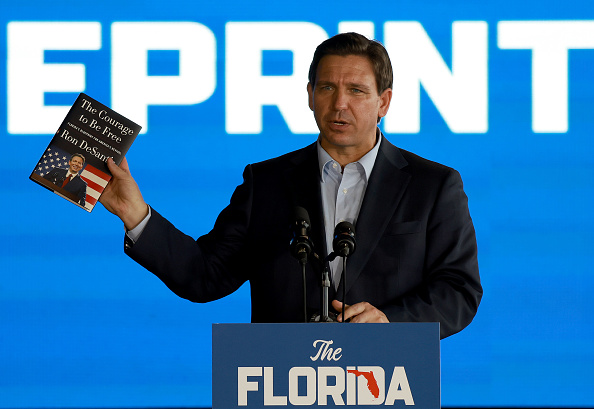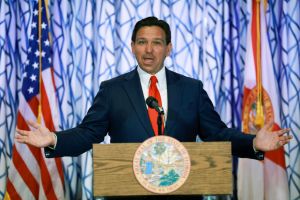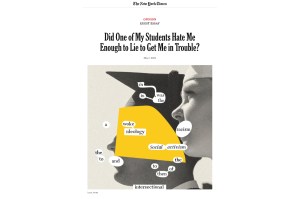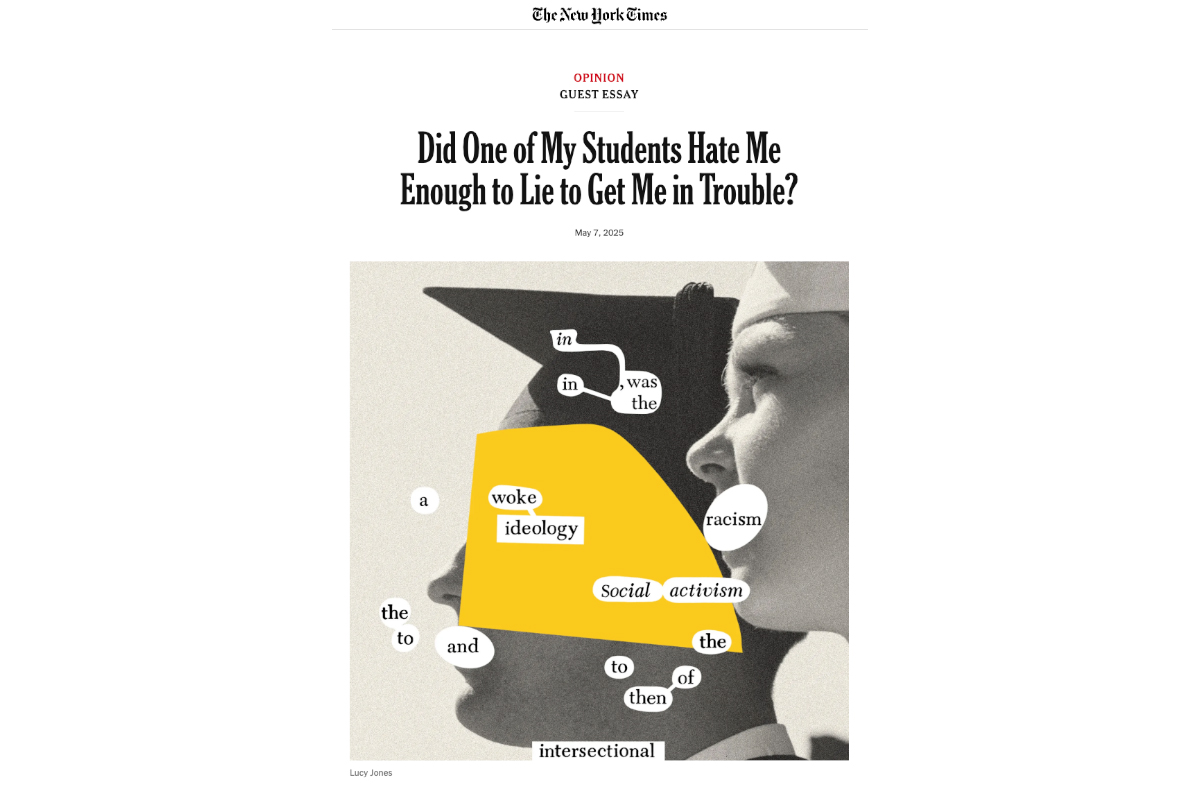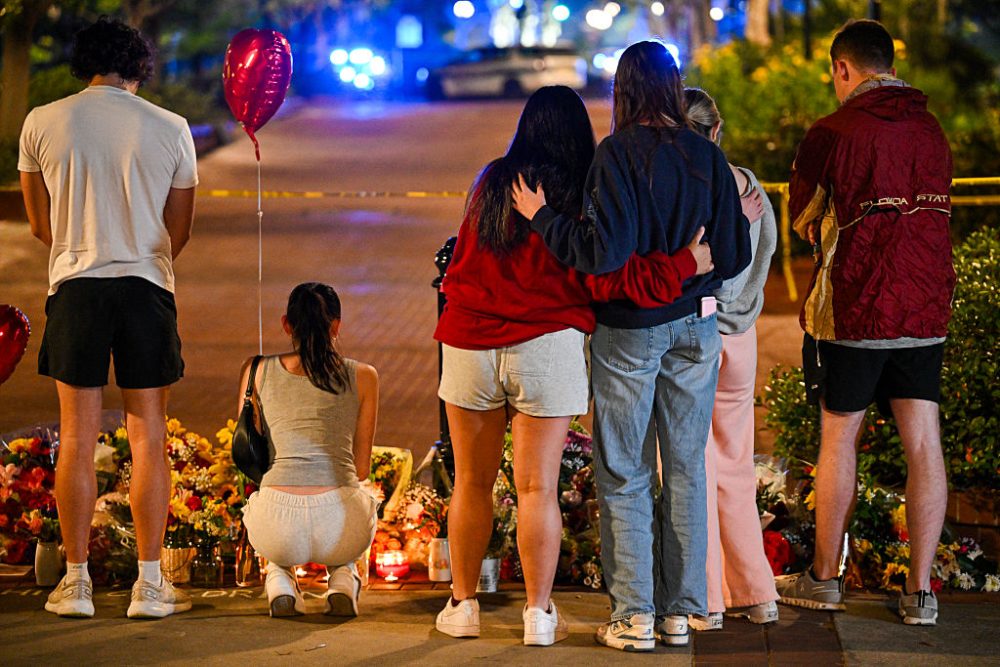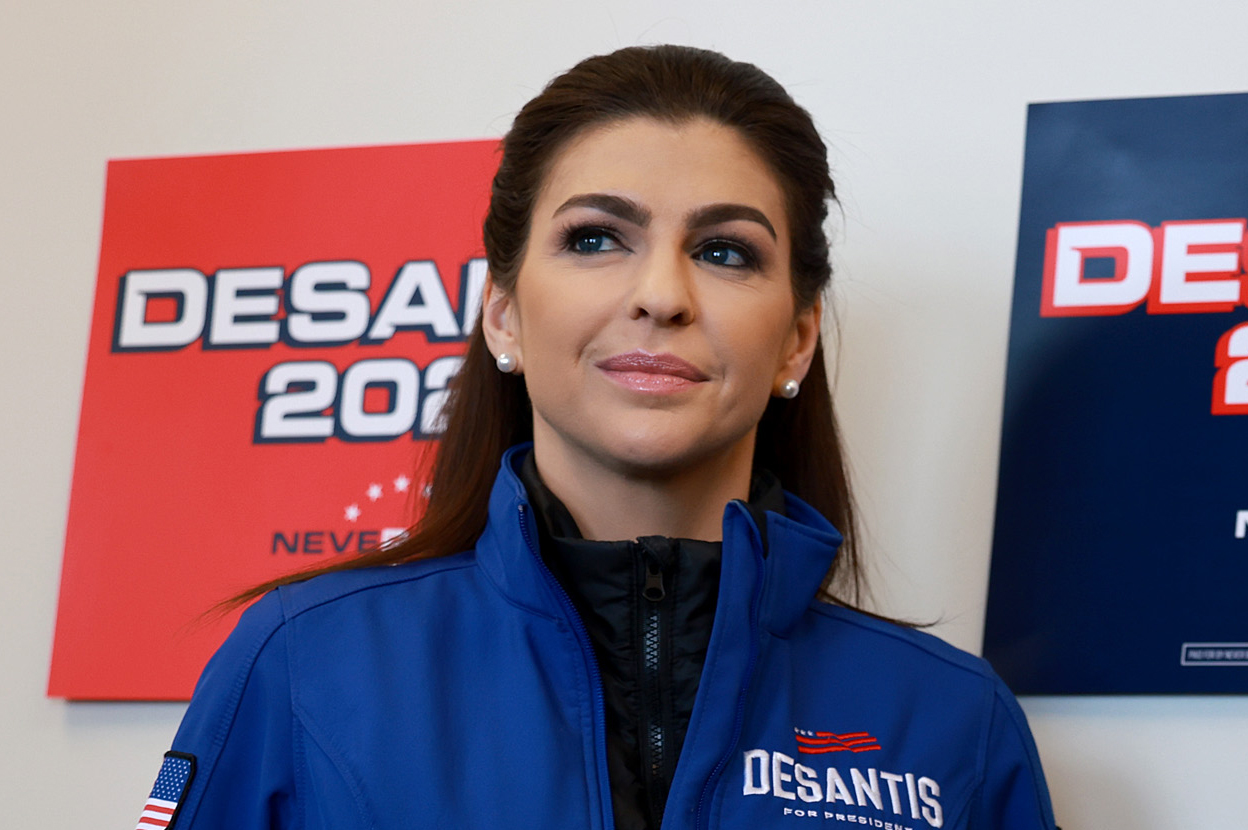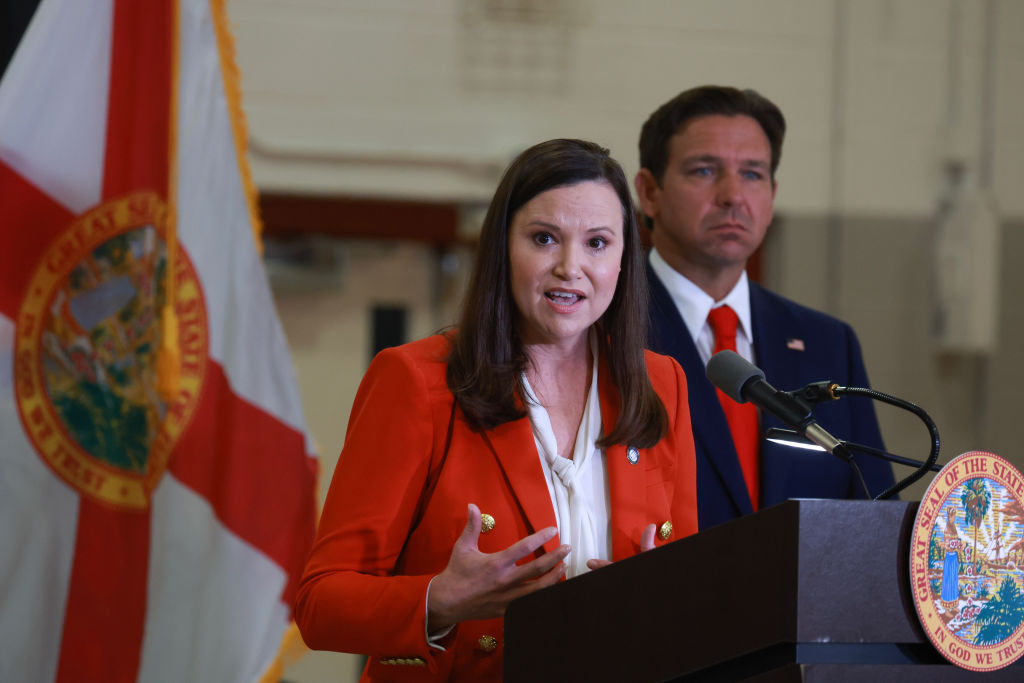Upon first read, it would be easy to conclude that Ron DeSantis’s new book, The Courage to Be Free: Florida’s Blueprint for America’s Survival, isn’t very revealing. After all, the list of topics Florida’s governor gave little or no attention to in his book is long. He says little about his parents, nothing at all about his early schooling, his church, his teachers, or others who influenced his thinking, nothing about his Italian heritage, his year as a teacher, or the 2015 death of his sister at age thirty, and many other personal issues.
Obama admitted using coke and other drugs in his memoir, Dreams from My Father. Bill Clinton told us he likes to wear briefs, not boxers, on television and dished on the strains the Lewinsky affair has on his marriage in his memoir, My Life. And Trump’s books are, not surprisingly, mostly all about him. The Courage to Be Free, on the other hand, can be seen as more of a 288-page campaign advertisement, albeit a very interesting and effective one. The fact that DeSantis’s book is full of policy battles and ideas and, yes, grievances — reveals that DeSantis is a serious guy, and a very private one. He may share many of Trump’s populist instincts, but the man the media has dubbed a Trump clone or Trump understudy actually couldn’t be more different from the Orange Man, as his book’s contents and omissions reveal.
The left has been triggered by DeSantis’s book since well before it was released on February 28 with no advance copies released or leaked to the media. Bess Levin, Vanity Fair’s politics correspondent, dubbed the book “cringeworthy” last November, and predicted the book would be “full of lies.” Levin, a women and gender studies major who is very much the sort of elite DeSantis rails against throughout the book, then told two egregious lies of her own in the very next sentence, effectively foreshadowing a chapter in DeSantis’s book where he eviscerates the media as the “liberal elite’s praetorian guard.”
“While the Florida official likes to boast that his is the freest state in the nation,” she opined, “that claim doesn’t actually hold up in the face of his attempts to stop people from saying the word gay or talking about racism.”
The New York Times panned the book’s supposed “dull coldness” and claimed it revealed, “someone who has expended a lot of effort studying which way the wind is blowing in the Republican Party and is learning how to comport himself accordingly.” This might be a legitimate critique of Trump, who grew up with money, supported Democrats, and hobnobbed with liberal elites for decades before re-branding himself as a populist, but it’s an ill-fitting critique of working-class DeSantis, one the Times provided no evidence to back up. DeSantis repeatedly emphasizes in his book that he’s never taken a poll. And if you visit DeSantisland (my nickname for the neighborhood where he grew up), as I did last year, and meet some of its residents, you come away with the sense that DeSantis reflects the values of his working-class community, despite having been educated at Harvard and Yale.
A CNN writer branded the book a “dull…grievance-laden tome” and predicted that within months, “unsold copies will lie on the remainder tables.” But according to Bookscan data analyzed by CNBC, DeSantis’s book sold 94,300 copies in its first week, and topped the New York Times bestseller list. Here’s how that compares to how other political biographies sold in their first week.
Hillary Clinton’s Hard Choices — 86,200 copies
Barack Obama’s The Audacity of Hope — 67,500
Mike Pence’s So Help Me God — 37,600
Mike Pompeo’s Never Give an Inch: Fighting for the America I Love — 34,600
Donald Trump’s Great Again: How to Fix Our Crippled America — 27,687
Nikki Haley’s If You Want Something Done: Leadership Lessons from Bold Women — 7,900
Sales of the book have indeed been brisk, and while the media predictably panned it, readers seems to love it, with the book averaging 4.7 stars with nearly 1,000 reviews, nearly 90 percent of them five-star, so far on Amazon. So what are readers digging about the book that elites don’t get? From a conservative perspective, it is a concise summary of the many left-right policy battles of the last few years — Covid policies, illegal immigration, parental rights in education, Big Tech censorship, corporate wokeness at Disney and elsewhere, crime and punishment, partisan media, election integrity, the Chinese threat, and more — it’s all there.
There are few behind-the-scenes moments in the book, but some passages will introduce a very different Ron DeSantis from the one the media has caricatured. I thought DeSantis underplayed his working-class roots in the book, which is a shame because the mainstream media almost never mentions his humble origins.
There was no mention, for example, that he worked at a local grocery store in high school, or that he grew up in a neighborhood of modest homes. But he did portray how different he was from his Yale classmates. While they were doing corporate internships or not working at all, he worked as an electrician’s assistant and at a host of other low-paying jobs he didn’t detail. We learn in the book about the loans he took out to attend college and law school and the fact that his bank balance rarely exceeded $100. His frugality, we discover, carried over to his career in Congress, where he slept on his office couch to avoid paying for an apartment in DC.
We learn in the book that DeSantis met his wife, Casey, then a local TV reporter, at a golf driving range, and that they were married at Disney World, of all places. DeSantis touched on his wife’s battle with cancer and detailed how his children were baptized with water from the Sea of Galilee, emphasizing how important this was for their family. He described how he and Casey launched his career, winning the GOP primary, despite being vastly outspent, by going to neighborhoods and splitting up, with each one targeting the homes of those who tend to vote in every Republican primary.
DeSantis picks no real quarrels with Trump in the book but doesn’t effusively praise him either. Without naming names, he argues quite correctly in the book that for too long, “Swamp Republicans” in Washington “failed to effectively represent the values of the people who elected them.” DeSantis also emphasized that he’s hired good people who have helped him be effective, and he’ll surely portray himself in the primary as a better manager and administrator than Trump, who had so much turnover and turmoil in office. As the budding Trump-DeSantis feud escalates in the months to come, expect the pugnacious DeSantis, who hasn’t backed down from any fights with the left and never apologizes for anything, to emerge.
Will the book help move the needle for him in the GOP primary? I think it will, because the story he details is a remarkable one that enhances his credentials as a winner. After being elected by a razor-thin margin in 2018, when Democrats outnumbered Republicans in the state by nearly 300,000, he transformed his state from a laughingstock that couldn’t properly count votes to an efficiently run “refuge of sanity,” the place where freedom-seeking Republicans from around the country moved to. Florida is no longer just a physical place but also a concept, a kind of promised land for many. By 2022, Republicans outnumbered Democrats by close to 300,000 voters and DeSantis expanded his mandate way beyond that, winning by more than 1.5 million votes.
As he details in the book, DeSantis won the Latino vote, he won the women’s vote, he won independents by fifteen points, routing former governor Charlie Crist (who was recently, bizarrely praised by Donald Trump) by nineteen points in the biggest landslide victory in the state since 1868.
The liberal media keeps telling us that DeSantis, who has never lost an election, lacks charisma and isn’t a good campaigner. These are debatable points, but take them with a massive grain of salt as many on the left desperately want Trump to win the nomination, as they view him as more beatable than DeSantis. In any case, The Courage to be Free, is essentially a well-written scoreboard detailing all of DeSantis’s wins. And they are hard to ignore.
The New York Times and other media outlets aren’t interested in understanding DeSantis’s growing popularity, but instead belittle those who support him, effectively proving his point that the media is full of elitists who are out of touch with ordinary Americans. The Times’ review of the book concludes, “What DeSantis seems to be doing in The Courage to Be Free is to insist that Americans should just stop worrying and let him do all the thinking for them.”
The Times’ reviewer, Jennifer Szalai, misses the mark here, neatly illustrating the appeal of DeSantis and others like him with such a breathtakingly elitist conclusion. DeSantis refers to just one book that influenced his thinking in The Courage to Be Free— Thomas Sowell’s Vision of the Anointed: Self Congratulation as a Basis for Social Policy. But it’s an important moment in the book that comes right in the introduction.
Sowell explains, in DeSantis’s words, “how a political outlook becomes a quasi-religious special state of grace for those who believe, while those who dissent from the vision aren’t just wrong but sinful. The crucial attribute of the vision lies in its resistance to evidence. If a preferred policy fails to achieve its stated aims, then new criteria can be formulated to rationalize the initial failure. This insulation from evidence virtually guarantees a never-ending supply of policies and practices fatally independent of reality. The anointed are concerned with narrative, not facts or results.”
DeSantis’s career, his mission, is essentially a battle against the anointed and their authoritarian impulse to compel the masses to think and act as they do. Contrary to Szalai’s assertion, DeSantis voters aren’t looking for someone who thinks for them, but rather a leader who thinks like them. But Szalai and so many others like her are, as DeSantis and Sowell argue, members of the anointed class. For them, DeSantis is a heretic, a sinner, someone who must be stopped. No book could convince these true believers to vote for DeSantis. But I suspect that the success of The Courage to Be Free bodes well for DeSantis’s bold venture to make America Florida.



